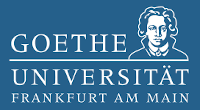Russian peasants’ beliefs on “krovosmeshenie” in the late 19th century (on materials of Fund of Vladimir N. Tenishev)
DOI:
https://doi.org/10.31168/2658-3356.2018.10Keywords:
incest, the prohibition of incest, Russian rural society, V. N. Tenishev Fund, F. HéritierAbstract
The article makes an overview of the materials collected by the Bureau of V. N. Tenishev in different provinces of European Russia regarding the ban on various situations of sexual relations between blood relatives and in-laws that existed at the Russian peasants in the late 19th century. An attempt is made to divide the whole set of prohibited sexual relations, united in the minds of peasants by the category of “krovosmeshenie”, i.e. incest, into two parts, based on the concept of two types of incest, presented by the French anthropologist F. Héritier, who developed the structural approach. Noting the variability in the views of Russian peasants, the author formulates the general trends. The first – “krovosmeshenie”, i.e. incest, was condemned, in the people's environment it was considered a sin, but not a crime. The second – the most serious sin were sexual relations in the presence of spiritual kinship, as well as within a small family (brother and sister, father and daughter) and "snokhachestvo" (sexual relations with daughter-in-law or sister-in-law, and other similar situations). Third – the anticipated consequences of incest: disgrace, destruction of the family, the inability to bear children, illness, unhappy fate, the heavy death.












